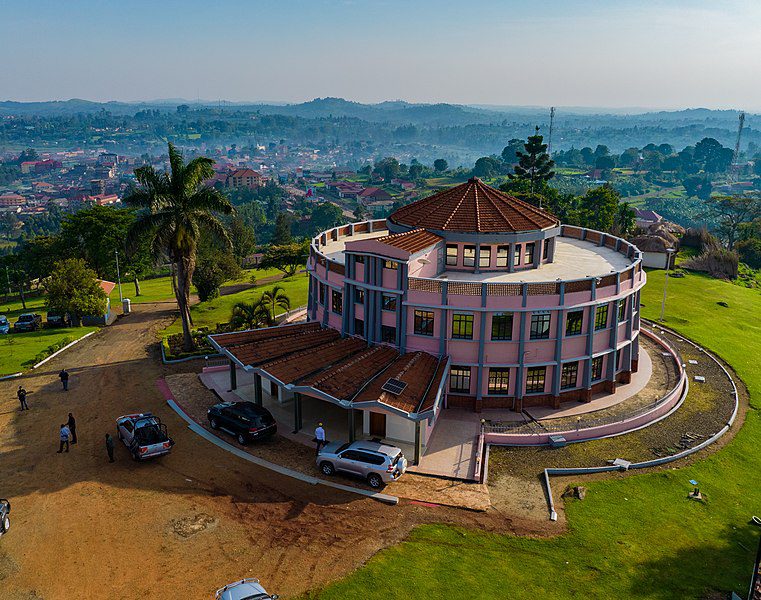The non-consensual sharing of intimate images, known as revenge porn, is a rising crisis in Uganda, leaving victims—mostly women—facing shame, stigma, and a lack of legal protection. From singer Desire Luzinda’s 2014 ordeal to countless unreported cases, this digital violence exposes gaps in Uganda’s laws and attitudes. It’s time for action.
Revenge porn involves explicit photos or videos shared without consent, often by vengeful ex-partners, spreading rapidly on platforms like X, WhatsApp and Facebook. The 2020 National Survey on Violence against Women and Girls found 95% of Ugandan women have faced physical or sexual violence since age 15, with revenge porn a significant part of this epidemic. Victims endure emotional trauma, ruined reputations, and job loss, as Luzinda’s leaked photos showed—sparking calls for her arrest rather than her abuser’s. Socialite Judith Heard faced similar blame when her stolen images went viral, summoned by authorities instead of supported.
More recently, singer Lil Pazo Lunabe found himself entangled in a public dilemma over trending fake nude videos circulating online, which he alleges were spread by rival King Saha to tarnish his image. This incident underscores how easily such content—whether real or fabricated—can be weaponized in Uganda’s digital landscape, where social media amplifies personal feuds into public spectacles. The lack of swift recourse for Pazo, or clarity on combating such defamation, mirrors the broader struggle victims face.
Uganda’s legal framework falls short in addressing this growing menace. The Anti-Pornography Act of 2014, intended to curb explicit content, was partially struck down in 2021 by the Constitutional Court for its vague scope—infamously targeting “indecent” dress rather than perpetrators of non-consensual sharing. Today, no specific law tackles revenge porn, leaving victims in a legal grey zone. This gap is not unique to Uganda; a 2016 study comparing Uganda and Malawi noted both nations’ reliance on outdated obscenity laws, which fail to protect those harmed and instead risk penalizing victims further.
Culturally, patriarchal norms deepen the crisis. Women are often held to rigid moral standards, blamed for taking intimate photos in the first place, as seen in Heard’s case. Statistics paint a grim picture: 65% of Ugandan women report intimate partner violence, yet many hesitate to seek help, fearing community backlash or judgment from family and peers. This victim-blaming culture not only silences survivors but also emboldens perpetrators, who face little societal consequence for their actions.
The scale of the problem demands urgent attention. Between 2016 and 2021, Uganda recorded 272,737 gender-based violence cases, including 2,278 intimate partner homicides, per Afrobarometer data. Revenge porn adds a digital layer to this toll, its impact magnified by the speed and reach of online platforms. Cases like Luzinda’s and Pazo’s show how quickly private moments—or fabricated ones—can become tools of public humiliation, leaving lasting scars.
Globally, there are models Uganda could emulate. In the United States, many states have laws explicitly criminalizing revenge porn, with clear penalties for offenders and protections for victims—some even allow civil suits for damages. The European Union’s General Data Protection Regulation offers another approach, treating non-consensual sharing as a privacy violation with strict enforcement. These examples highlight the importance of tailored legislation, something Uganda desperately needs to bridge its legal gap.
A comprehensive solution requires more than laws alone. Uganda could align new legislation with international commitments, like the CEDAW treaty signed in 1985, which calls for ending gender-based discrimination. Public awareness campaigns—reaching both urban centers like Kampala and rural areas—could educate communities about consent and digital privacy, challenging the stigma that traps victims. Organizations like WOUGNET already advocate for digital safety; expanding their efforts with counseling and legal aid could offer a lifeline to those affected.
Collaboration with tech giants is another critical step. Social media platforms like Facebook and X could implement stronger reporting tools and faster content removal processes, tailored to Uganda’s context. In Pazo’s case, the spread of fake nudes might have been curbed with proactive platform intervention, sparing him—and others—prolonged public scrutiny.
Uganda can’t afford to ignore this crisis any longer. Victims are left blamed by society, abandoned by the law, and hounded by the relentless reach of the internet. Robust legislation, education, and support systems can forge a safer digital future, ensuring that dignity—online and off—becomes non-negotiable. The time to act is now, before more lives are irreparably damaged by this modern plague.






